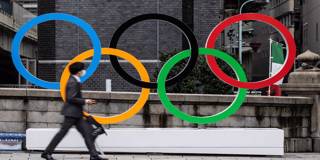OnPoint Subscriber Exclusive
The Big Picture brings together a range of PS commentaries to give readers a comprehensive understanding of topics in the news – and the deeper issues driving the news. The Big Question features concise contributor analysis and predictions on timely topics.

Tokyo’s COVID Games
The Summer Olympic Games, set to begin in Tokyo on July 23, will take place in mostly empty stadiums after an uptick in COVID-19 cases forced Japanese officials to bar spectators. While athletes from around the world will compete for gold, some observers are posing fundamental questions about why the Games exist at all.
In this Big Picture, Bill Emmott, co-director of the Global Commission for Post-Pandemic Policy, argues that the facts on the ground – specifically, Japan’s relatively low COVID-19 infection and death figures – leave the authorities with no sound reason to cancel the Games. And in a 2019 commentary, Tokyo Governor Yuriko Koike explained how the city, unlike many past Olympic hosts, is committed to embedding long-term economic, social, and environmental needs into all Games-related planning processes.
But Olympic enthusiasm may be in short supply. Takatoshi Ito of the National Graduate Institute for Policy Studies in Tokyo notes that the Japanese government’s recent declaration of a pandemic state of emergency in the city will not only keep spectators away from the Games but also may affect Prime Minister Yoshihide Suga’s political prospects this fall.
Ian Buruma mounts a more fundamental critique, arguing that the decision to hold the Games during a pandemic confirms that the International Olympic Committee’s only real ideal is to make enormous amounts of money for itself, its commercial partners, and sometimes for corrupt politicians. Likewise, Pacific University's Jules Boykoff, a former member of the US Olympic Soccer team, says staging the Games not only fails to strengthen democracy and human rights in the host country, but actually makes democratic states more autocratic.